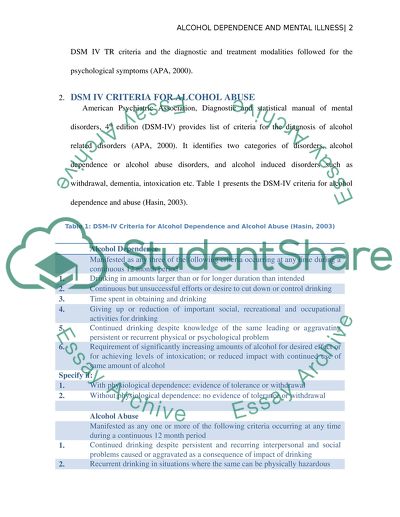Cite this document
(“Alcohol Dependence Correlated with Mental Health Diagnosis According Research Paper”, n.d.)
Alcohol Dependence Correlated with Mental Health Diagnosis According Research Paper. Retrieved from https://studentshare.org/psychology/1438927-alcohol-dependence-correlated-to-mental-health
Alcohol Dependence Correlated with Mental Health Diagnosis According Research Paper. Retrieved from https://studentshare.org/psychology/1438927-alcohol-dependence-correlated-to-mental-health
(Alcohol Dependence Correlated With Mental Health Diagnosis According Research Paper)
Alcohol Dependence Correlated With Mental Health Diagnosis According Research Paper. https://studentshare.org/psychology/1438927-alcohol-dependence-correlated-to-mental-health.
Alcohol Dependence Correlated With Mental Health Diagnosis According Research Paper. https://studentshare.org/psychology/1438927-alcohol-dependence-correlated-to-mental-health.
“Alcohol Dependence Correlated With Mental Health Diagnosis According Research Paper”, n.d. https://studentshare.org/psychology/1438927-alcohol-dependence-correlated-to-mental-health.


